Notebooks listed entire Bolivian network of urban contacts that a guerrilla group needed to get in touch with… friendly Communist contacts in nearby South American countries… and listings of several bank accounts. Combined with the major’s “report” the Bolivian government was now convinced that there were 500 highly experienced, mostly foreign Communist insurgents in the remote mountains… many of them veterans of the Cuban Revolution.
Before long, several men came down out of the mountains claiming to be “journalists.” The Bolivian authorities who captured them in a small village were simply going to shoot them out of hand, but the next morning before they could, they learned that somebody had taken a photo of them alive in government hands and the photo was now in the hands of the press in the capital. The prisoners were sent on to the capital as well.
One turned out to be a real journalist and was turned loose after a couple of months. One ultimately proved to be a Bolivian “city boy” who quickly found the life of a guerrilla to be hard, brutish, and dirty. The third was a young French “intellectual” writer, Jules Regis Debray who was a quintessential “parlor pink.” He had decided to become a guerrilla fighter. The insurgents considered him to be a “weak, foppish joke,” and were delighted when he left. (but nobody in the guerrilla camp ever let him know how many fighters there were and where the rest might be.) But he eventually broke and told the Bolivians that the man heading the foreign insurgents was Che Guevara…
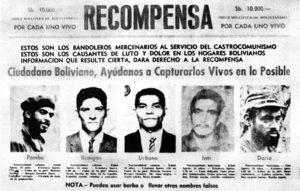
The Bolivian President, (a former Bolivian Air Force general) was alarmed. He now had “proof” that 500 combat experienced foreign fighter were in the Bolivian mountains, led by Che Guevara and had launched their first assault on his country. (Actually the guerrillas were responding to the soldiers stumbling into them.) He called in the U.S. ambassador, Douglas Henderson.
President Barrientos demanded that his army be reequipped with the latest weapons (many still carried bolt action Mauser rifles) that his Air Force be given the latest jet fighters (plus lots of napalm) and that he be given large amounts of U.S. dollars to pump into his military.
Henderson was nobody’s favorite in Washington…(he once contradicted Robert Kennedy at a large meeting a couple of years before) and even open-minded people who had dealings with him often found him to be a pain in the ass. But when it came to dealing with the Bolivian government he knew what he was about.
He passed on the request, but suggested that it be declined. He was fully aware that a frightened poorly trained Bolivian conscript would drop an M-16 and run away just as fast as if he were carrying a Mauser. Henderson was also aware that prior to the NVA entry into South Vietnam that the VC had equipped themselves with abandoned American weapons left by poor quality South Vietnamese soldiers.
The jets were a bad joke. The Bolivians could never maintain them…and they were poor choices anyway for counter-insurgency war. Besides, for as long as possible the U.S. government wanted to keep all South American countries restricted to non-jet fighter and bomber aircraft. Henderson did advocate U.S. help in refurbishing Bolivia’s WW2 fighters and light bombers.
Napalm was definitely out. Henderson knew that the Bolivian Air Force would be dropping it on anything that moved in the mountains and eventually every small village and hut. No faster way to provide dedicated recruits to the insurgents from a previously apathetic population. As to the money… no way in hell. Corruption was so bad in Bolivia that many civil servants had gone unpaid for six months or more at a time. Barrientos was stating that his forces could “clean this all up themselves” if they were “given the tools…” Henderson wasn’t going to give them what they wanted… but he agreed that the Bolivians had to deal with this themselves. Inserting regular American ground forces into the mountains of Bolivia would be the response that Che would be hoping for. Like the napalm, it would generate many recruits. No doubt he was hoping not only to have a growing war in Bolivia, but to spread the insurgency to all the many surrounding countries… (“Many Vietnams” as he called it.)
Henderson had early on figured out why everything was going to hell in Vietnam. He refused to let the U.S. go down the same road in South America. Fortunately, Secretary of State Dean Rusk shared his opinion.
Bolivia was a military basket case.A couple of generations before they had lost a number of major wars in a most miserable way. Revolution (before the most recent coup) resulted in some long overdue “baby step” reforms… but also disbanded the military. The military was reestablished after the last coup, but maybe 1500 soldiers to prevent the next coup… and six thousand campesino conscripts doing two year service, (incredibly, all discharged at the same time and new ones just starting, with this “trouble” occurring at such a change).
Meanwhile, the Bolivian Army were blindly sweeping the mountains looking for the guerrillas. Twice, patrols were shot up, their weapons, equipment and uniforms taken… and surviving soldiers sent off naked. Something had to be done. If the guerrillas got support of the local Communist parties (one pro Russian, one pro Chinese) or the left-leaning mine workers, it could all go up in flames. Meanwhile panic broke out in much of the Bolivian government (and neighboring regimes as well). Barrientos might soon be replaced in a coup. With no great shakes, Henderson correctly assessed him as the best available, and only the Marxists would profit if his government fell.
While some in the Pentagon wanted to send in regular American forces, wiser heads decided to send in an enlarged Special Forces team to train up a Bolivian Ranger battalion. Barrientos kicked, but he was told that he either approved it, or the U.S. would sit on its hands. He approved, but he couldn’t seem to grasp that you can’t create an elite force overnight. The United States picked the best officer that it had to orchestrate the doom of Che Guevara, a one time physician who attained high rank in the Cuban Revolution and later was a major player in the new Cuban government. To fight this “legend” the U.S. Eighth Special Forces group chose… a man from Mississippi who dropped out of the tenth grade to chop cotton.
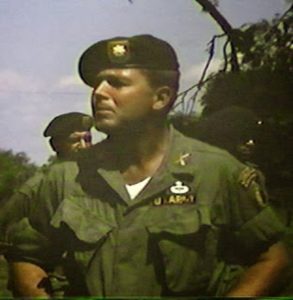
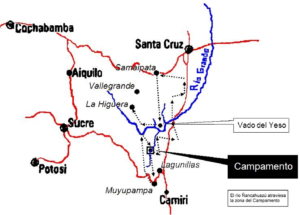
Che Guevara had slipped into Bolivia using a false passport. He had altered his appearance to where his own brother might walk by him on the street. He was hoping to topple the Bolivian government; not an unreasonable objective when one considers that Bolivia had already had 100 coups in its history.
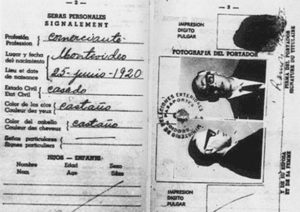
Major Ralph “Pappy” Shelton flew into Bolivia months later. Born in Corinth, Mississippi, he dropped out of high school in the tenth grade and chopped cotton. The Army looked far more attractive. He joined as a private and had worked his way up to major. He fought in Korea and later was the oldest man in his OCS class at 28, just short of his 29th birthday which would have disqualified him. (hence, “Pappy…) He had Ranger training and then joined the Special Forces. He had been deployed in Laos and the Dominican Republic. He agreed to this mission but made it clear that he was going to retire when it was completed. His wife and kids saw too little of him for too long.
His team was larger than normal, 16 officers and men hand picked by him from the Eighth Special Forces Group. He demanded and got priority, including a C-130 on call to bring him whatever he needed.
His mission was to create a Bolivian Ranger battalion. He would have 19 weeks to train 650 campesino conscripts with a sprinkling of NCOs (often somebody that could read and write a bit…) and officers. He made it plain that the officers would be run through the wringer as well as the men and didn’t want anybody who felt that he was “above such things.” Major Montano, the designated battalion commander would have to be handled a touch more delicately, but he was cooperative and proved to be no problem.
The clock was ticking and Shelton needed somewhere to train the battalion. A couple of his men who arrived in country to recon prior to his arrival found a perfect spot away from built up areas, and 100 miles from where the guerrillas were operating. A small dusty town called La Esperanza. Herds of cattle were more common on the main drag in town than vehicles. It once had a sugar mill built with U.S. aid money years before, but over the years mismanagement led to it being closed and abandoned. The town and surrounding people who worked on small plots were barely getting by.
The giant sugar mill proved to be a godsend to Shelton. A massive building, its walls (and roof) still intact. The old powerlines were still in place so he arranged for massive generators to be flown into country and installed. Some areas could be used as classrooms, others as barracks. No running water or toilet facilities, but you can’t have everything.
The Bolivian officers arrived. One in particular caught Shelton’s eye. Captain Gary Prado Salmon. An aristocrat and a cavalryman by prior assignment. His father had been a general in the Chaco War and was now a senior Bolivian government minister. Normally a dreadful background for unconventional warfare… but Prado was different. He had been through the U.S. counter-insurgency school in Panama and believed in building a lean and professional army for Bolivia. At a social gathering weeks earlier that included the Bolivian President, Prado openly contradicted Barrientos regarding what the country needed to fight the guerrillas. This might well have crushed his career, but Barrientos thought for a moment and said, “Maybe you’re right…” and assigned him to the recently approved Ranger battalion.
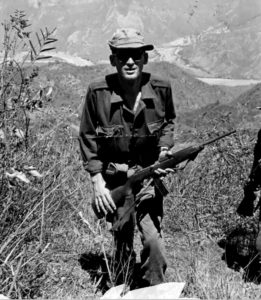
Shelton liked everything about Prado and offered him a position as special advisor in addition to his responsibilities as a company commander. Shelton needed to know if his training was getting through to the campesinos. He needed to understand their prejudices and foibles. Above all he needed the truth, with the bark on. Prado promised not to sugarcoat anything and to speak up without hesitation. It worked splendidly.
As the enlisted soldiers arrived, Shelton went into the town and met with the mayor and the elders from the area. He explained what he had in mind. He told them that the enlisted trainees would not interact with the locals at all. They would be under the strictest discipline so property and good order would be safe.
He also explained that for quite some time to come, money would be flowing into the town and its surroundings. Not just the Rangers, but other regular units would later come after the Rangers were gone to train. Locals would be selling food to the unit, people would be hired to cook and do laundry and others would be hired for construction so that the soldiers could concentrate on their training. All the inhabitants in the area would be welcome and treated by the medics without cost.
That night he went to a half store, half kiosk. Chairs and tables outside, where the local men gathered after dark to drink beer. Shelton brought his guitar. He was just barely competent, and his singing voice nothing to write home about, but he sang in Spanish and passed the guitar around. The local men had never encountered an officer like this and from that moment on his presence was eagerly looked forward to at the kiosk when the sun went down. Officers and men from Shelton’s team often went there, especially the Intelligence officer who quickly made friends and gathered much solid information from the immediate area, and other info that they heard on the “grapevine” about areas closer to the “sharp end.”
The conscripts proved to be about what Shelton expected. One uniform per man. No canteens or packs or ponchos, or, or… Old Mauser bolt-action rifles that many had never fired.
Many of the lads had their first pair of boots issued to them by the Army. But they knew nothing about dental hygiene or proper camp sanitation. A few steps from the barracks was their idea for relieving themselves. This was immediately changed. Slit trenches were dug the proper distance from barracks and any failing to abide by the new way of doing things found himself digging many more. The trainees came to admire their slit trenches and many could not bear to soil them… so they went many more yards away and used the bushes…
As to dental and other problems, the medics did everything from pull teeth, to issue toothbrushes and properly instruct the men who were observed every day for weeks to make sure that they properly brushed when they were supposed to.
Meanwhile, Shelton ran into Harry Singh. American with the U.S. Agency for International Development. He offered to use his equipment and some of his budget to help build a new school building in La Esperanza, something devoutly desired by the locals. He also bulldozed out a proper firing range for Shelton while he was at it. Local villagers provided the labor force.
But money for the roof lacking. The U.S. ambassador couldn’t see the point. The Bolivian government said, “If the sun is shining they don’t need a roof, if it is raining, they don’t need to be in school.” Shelton “leaned” on his superiors at Eighth Special Forces in Panama and they came up with the money.
The Special Forces NCO in charge of range training had trouble getting enough ammunition from the Bolivian Army. If conscripts got any rifle practice, they were strictly limited to 10 rounds per man for their entire two years service. Shelton contacted his superiors in Panama and the battalion (freshly issued M-1 Garands) had an allotment delivered equal to 5,000 rounds per man.
Trainees tended to look away from their American instructors on the range. Prado explained that most conscripts in the Bolivian Army, when firing their ten rounds were kicked by an officer each time that they missed. Shelton immediately put a mass of good-natured team spirit into the training.
Days started with morning PT and runs. Trainees were made to shout slogans saying that they were the best. Eventually they started to believe it. Rangers have to function at night and these trainees moved into the bush at night, and fired much ammo on the range in the dark.
Bolivian soldiers typically seldom moved far from their camps, they had to return to eat meals. Usually this consisted of a little meat and some beans and a lot of water boiling in giant pots. Usually pretty bad and not at all nutritious. Food in the SF camp was top of the line, all you can eat. In the field the soldiers carried dry military rations so they would not be tied to a camp.
Bolivian NCO’s had extra training to where they could handle any weapons system and teach others. They were also made to feel responsible for the men under them.
An accidental discharge killed one trainee. Several others killed and wounded by a mishap with a mortar. The trainees did not confuse their training site as a scout camp. But their health, fitness, competence, and morale increased by leaps and bounds.
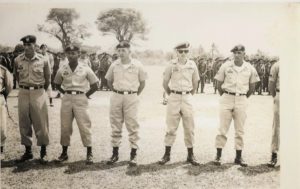
Shelton was not left in peace. The Bolivian Army’s top general called the major after the conscripts had only had two weeks of training and demanded that they be put in the field against the guerrillas *immediately* This was stupid, wasteful and pointless. Shelton refused. He had been guaranteed 19 weeks.
Soon after, President Barrientos demanded that the trainees be packed up and sent to the mining district. The miners were always rebellious and now causing trouble again. He wanted the battalion to go up there and shoot some miners to get the others in line. The major refused. Barrientos insisted. Shelton told him that he was promised 19 weeks and would act accordingly unless the U.S. government ordered him otherwise. And while he ran the lash-up, the battalion would not shoot any miners.
The U.S. government is often shortsighted, but even they understood that two weeks training was a joke, and they were not paying all this money to shoot some stubborn miners. Barrientos was told by the U.S. that if he pulled the soldiers out of training, the U.S. would wash its hands and abandon Bolivia. Shelton made some definite enemies, in both Bolivia and the U.S., but hell, he was retiring when this assignment was over so the politicos could pound sand.
(One problem with the Internet is that many items that I read in books or professional journals thirty or forty years ago are not listed on the Internet if too esoteric. Just as bad, it might be there, but unless you know the exact “magic words” if there are any… you might be faced with countless entries not at all related.
While in Africa I read an article stating that Bolivian forces blundered on a hastily abandoned guerrilla camp and found a “Ho Chi Minh” stove. Designed for the first Indochina war, it showed no flame to give away guerrilla positions at night to aircraft overhead. The article said that once the Americans made aware of that, tracking insurgents became vastly easier because while no flame showed, it gave off a huge heat signature at night in the mountains that properly equipped U.S. aircraft could easily detect. This may have been so, but at this moment I have been unable to find any available documentation, but it is a possibility and would explain much.)
While the battalion’s training was going full tilt, the Bolivian Army was not tasked with hunting down the guerrillas… simply “containing” them in a large area. Active combat patrols would just give them more weapons, supplies and propaganda victories.
Somehow a Bolivian unit was in a location not far from a portion of Che’s forces. (That portion had split off for a time, but somehow had no alternate rendezvous location when the appointed one was not possible. For months they searched for each other without any luck.)
With the aid of a campesino who had been contacted a number of times by the smaller party, the Army set up an ambush at a river crossing. Ignoring their training and past experience, the guerrillas crossed the river without proper security. All but two were killed. (“Tanya” was killed at this time.) Angry over the one Bolivian soldier killed in the engagement they shot one of the wounded insurrectionist survivors. The other was sent to the rear. He turned out to be a prize.
The captured lad was a Bolivian national who had been promised that the guerrillas would send him to Cuba for a college education. Instead, they made him an unwilling conscript. He was glad to share all the information that he had. The Bolivian Army now had some idea of Che’s range.
Seventeen weeks into training and Shelton got word that Che’s approximate whereabouts were now known. However, if they were going to move it would have to be now, not two weeks from now. He gave the order to pack up and the Ranger battalion left for the “sharp end” under the command of their own officers.
Shelton and his team wanted to be with them, but orders from Washington were firm. No Americans in the immediate area of operations. Hell, Shelton thought that if they just sent him and his team, he might be able to end the whole thing. Che had made a dog’s breakfast out of the whole Bolivian campaign and was no longer operating like a guerrilla, but like a bandit.
He brought many Cubans and other South American veterans of the Cuban Revolution. When he met with Bolivian Communist Parties (one pro Russia, one pro China) he told them that he would be in command and they would take his orders. They were Communists, but they had some pride in being Bolivian so they went home and mostly sat on their hands rather than send supplies and especially volunteers.
The Bolivians that Che had, soon grew to resent Che’s “cadre” and either quit or deserted. Russia insisted that guerrilla action not commence until the country concerned was ripe for it (as Cuba had been.) Che believed that revolutionaries could create the conditions that made the country ripe. Bolivia would prove him wrong.
Che picked wild mountain country, but the population density was low. The campesinos had no great love for the Bolivian government but it mostly left them alone. They were not ready to sign on with Che. Che became angry and made threats. Soon populations of small villages were gone when he arrived, especially young men that he might try to conscript at gunpoint. In anger he and his guerrillas looted food and other items from the peasants, violating one of the cardinal rules of guerrilla warfare. Soon government troops were getting relatively fresh information from campesinos who just wanted to be left alone. The fastest way to do that would be for the government troops to eradicate the “bandits.”
Che would have done far better to have operated within reasonable range of the Bolivian miners. They were extremely militant and in the past had (successfully) taken up arms against the government.
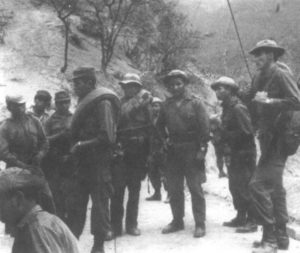
The Ranger battalion was driven in trucks to the operational area. Che had gotten sloppy and moved in daylight and his force was seen by an old woman moving down a large gully. The battalion split into companies and deployed as they had been taught. It was October 9th 1967.
Soon there was a mass of gunfire. Some Rangers wounded, some killed. Would they let themselves be pinned down, or drop their weapons and run as so many Bolivian soldiers had? No. Instead they shifted their formations and aggressively closed with the guerrillas. Che had counted on breaking them. He had absolutely no intelligence that a Ranger battalion had been properly trained and was determined to wipe out his cadre. His band was shattered and broke into small groups just trying to escape.
Che and one of his men were lightly wounded and trying to flee up a steep hill. But Captain Prado and his men were waiting. When Che and his companion were hit, his M-1 carbine was also hit and rendered useless. He identified himself as Che Guevara and surrendered to Prado. He told them that he would be a “valuable prisoner.” Probably to avoid being shot out of hand… but the Rangers were too disciplined for that sort of behavior.
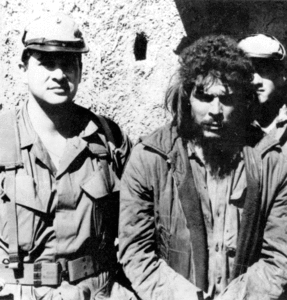
The rest of the Ranger battalion spent some days in bitter combat running down the remaining guerrillas. In the end only three of the cadre escaped, to Chile where they were given sanctuary. The rest died or surrendered.
Che was taken to the nearest large village and handed over to senior officers from the Army. The next day the President of Bolivia ordered that he be immediately shot. Revisionist “historians” (sic) say that the CIA was responsible for this, when it was quite the opposite. They were drooling to get him flown up to Panama. (Che would hardly have cooperated, and he knew nothing of great importance, but it would have been an ego trip for the CIA.)
Barrientos could be bloody minded at times, but here he was being pragmatic. Bolivia had no death penalty, the most that a Bolivian court could do would be to sentence Guevara to 30 years. Unlikely to do that. When the parlor pink Debray was to be put on trial, Bolivia and the U.S. hounded by countless pleas for “clemmency” from “all the usual suspects” plus the Pope and Charles DeGaulle who simply called Debray “a gifted student.” They were forced to release him. Bolivia had been injured and humiliated. Che had to go.
In his book on guerrilla warfare Che had said that by age 35 men were too old for the rigors of full tilt guerrilla warfare. He was 39 when he died.
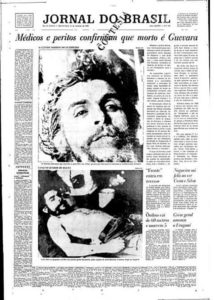
But again, castles built on sand. The Bolivian government wanted no elite soldiers. Within a year of their being mustered, (once positive that no guerrillas remained,) the Ranger battalion was disbanded. The official line was that Che had fallen to “Bolivian soldiers.” little to no mention of the Rangers.
Captain Prado was a national hero and safe from the elite social class; but there was always an eye on him. He quickly rose through the ranks, but upon making general was involved in dispersing some political gathering of right-wing officers when “somebody” shot him in the back.
He went on to teach history and military science at the university from his wheelchair, when various governments didn’t have him under “house arrest.” Each of the governments that imposed this had wildly different reasons for doing so, ranging from being a potential “separatist” to accusations of “complicity” in Che’s execution. (He delivered Che alive to superiors outside his unit who got their instructions from the Bolivian President.) He has never been charged with anything.
Younger people in Bolivia who have no real idea of just who Che was and what he was about have created a sort of fan club.
One thing that came out of all of this: The school La Esperanza is sturdy. It still stands and local youngsters get an education in a proper building… come rain or shine.
-Yankee Papa-
Suggested reading:
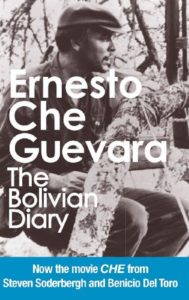
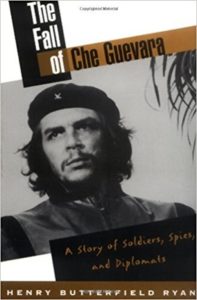
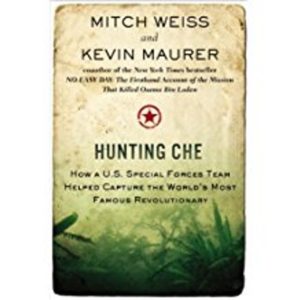
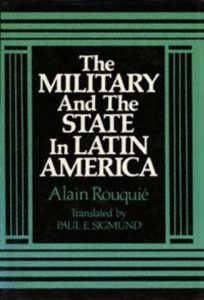

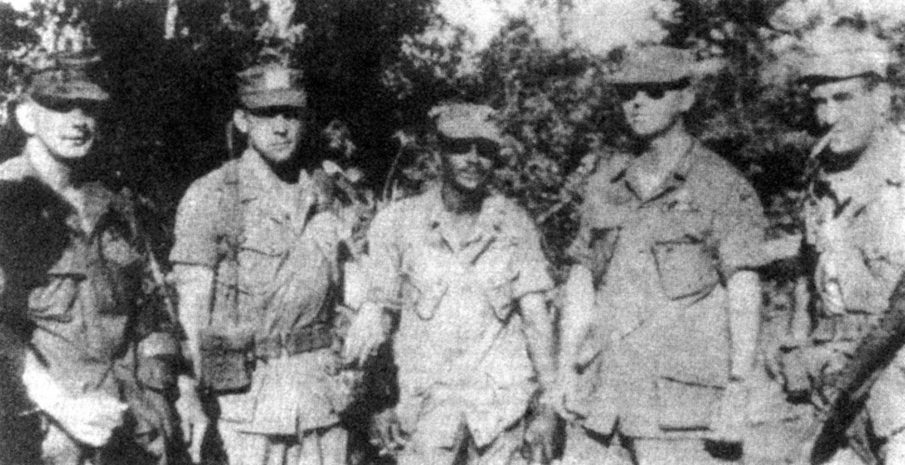
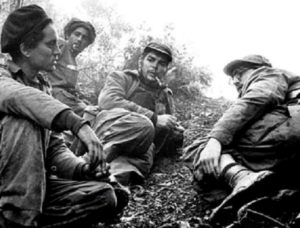








COMMENTS